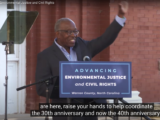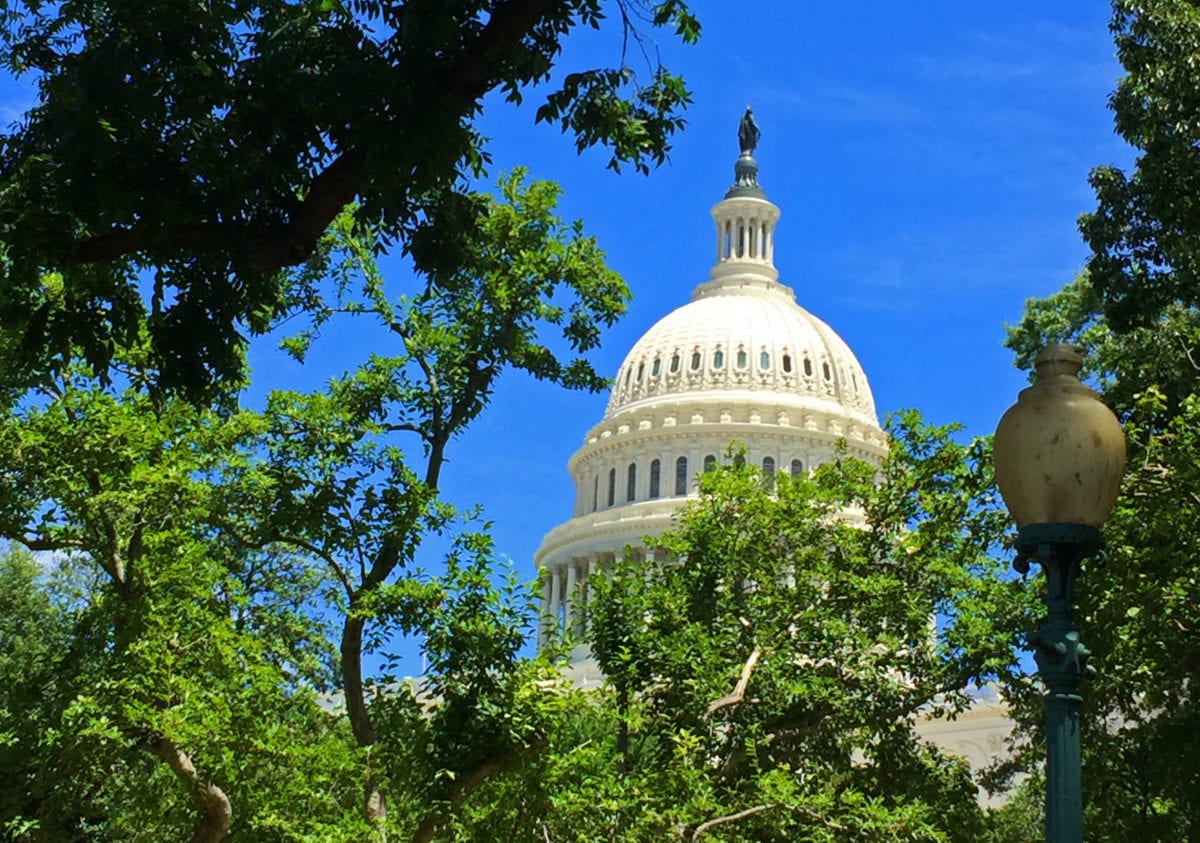
A unique view of the U.S. Capitol building in Washington, D.C., July 7, 2018: Glynn Wilson
The Big Picture –
By Glynn Wilson –
WASHINGTON, D.C. – The Fourth of July holiday week is over and the soothing cool front is moving out. It’s about to get hot again in the nation’s capital in more ways than one, just in time for President Donald J. Trump to turn the country even further to the political right with a new appointment to the United States Supreme Court.
The best news of the week was the resignation of Scott Pruitt as head of the Environmental Protection Agency.
But on Monday morning, our new Senator from Alabama, Doug Jones, is pulling a Howell Heflin and sitting on the fence on how he will vote on Trump’s pick for the Supreme Court, set up in an interview by Newhouse’s al dot com (formerly the Birmingham News) saying he could vote no, or maybe yes, depending … (see Facebook).
Library of Congress
Meanwhile after our trip to check out the history of the Siege at Yorktown last Monday, I made the trek into town Saturday to tour the Library of Congress and obtain my official main reading room library card. You never know when some actual paper research might be in order. Then, you don’t want to stand in line with the tourists. Met up with the woman I met recently at the Trump hotel for the library tour.

Baltimore Orioles star Cal Ripken makes Baseball Americana exhibit, Library of Congress. I got to see him play once: Glynn Wilson
In addition to all the great Smithsonian museums in town, the Library of Congress is a museum too. We got there just in time for the official opening of the Baseball Americana exhibit, although you can find out most of that history online from anywhere. But if you want to get an in-person closeup look at Thomas Jefferson’s library books or his early draft of the Declaration of Independence, you have to come here in person.
As the museum says, throughout his life, Jefferson (1743–1826) “collected books across a vast spectrum of topics and languages, following a modified version of an organizational system created by British philosopher Francis Bacon (1561–1626) to arrange the books in his library, then the largest private book collection in North America.” Divided into categories of Memory, Reason and Imagination — which Jefferson translated to “History,” “Philosophy” and “Fine Arts” — and further divided into forty-four “chapters,” the collection placed within Jefferson’s fingertips the span of his “multifaceted” interests.
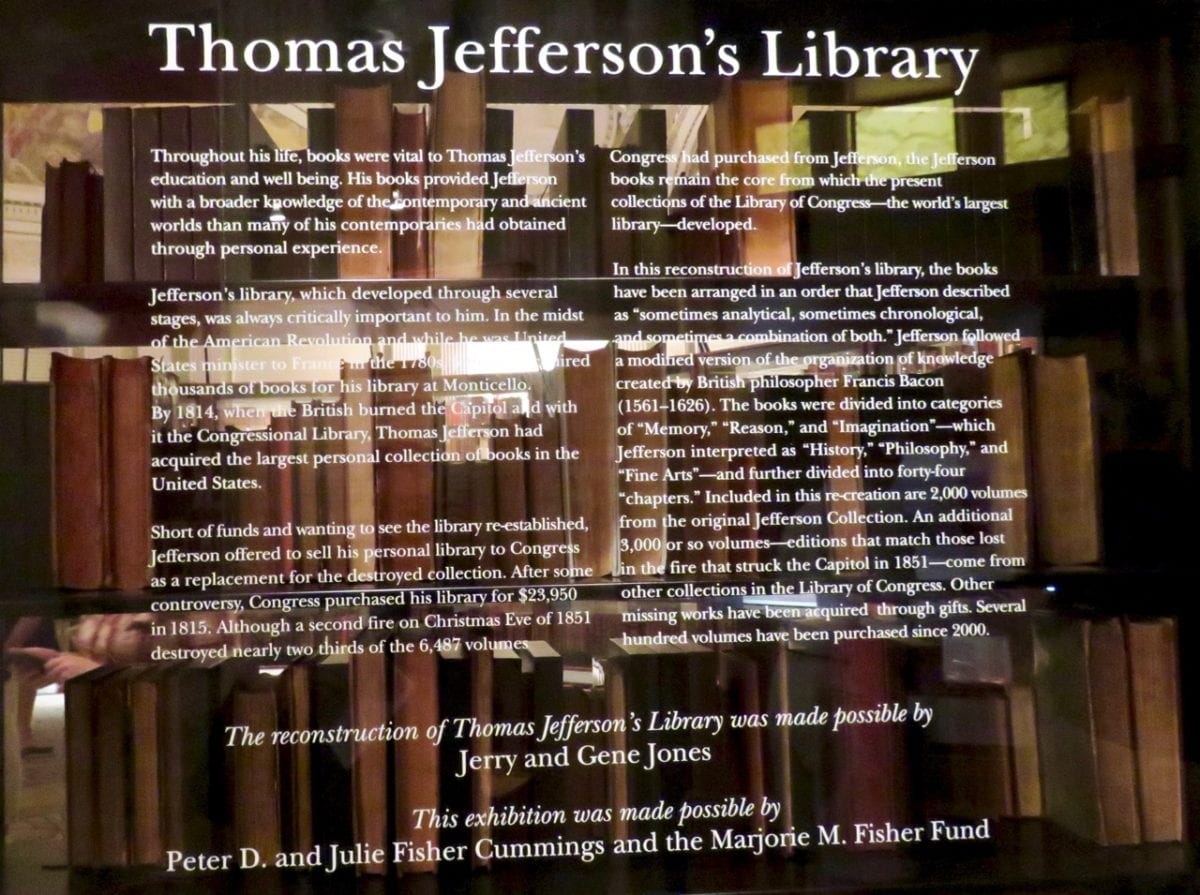
Thomas Jefferson’s library books on display in the Library of Congress: Glynn Wilson
What may be lost to most visitors is a fact I picked up while researching a doctoral dissertation a few years back. The library may look large to some, maybe small to others, but the intellectual advantage Jefferson and the other founding fathers had in the late 18th century was the ability to pretty much read everything published by that time on most subjects. While we have much more information available to us these days — much of it on the web accessible with an internet connection — it would be quite impossible to put together a truly comprehensive bibliography and literature review on any subject today.
Why? Because so much has been published since then and knowledge is so specialized now that no one person could possibly read and comprehend it all.
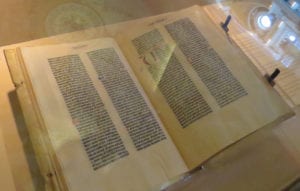
The Gutenberg Bible, published in 1455, in the Library of Congress: Glynn Wilson
“Gutenberg’s invention of the mechanical printing press made it possible for the accumulated knowledge of the human race to become the common property of every person who knew how to read — an immense forward step in the emancipation of the human mind,” according to the Library of Congress.
So Jefferson had for his use most of the important books published from the late 1400s to the late 1700s, a span of 300 years. Now the Library of Congress alone, founded in 1800 to serve the reference needs of Congress, houses a collection that has grown from 6,487 books to a current accumulation of more than 16 million books, along with and more than 120 million other items and collections, “from ancient Chinese wood-block prints to compact discs.”
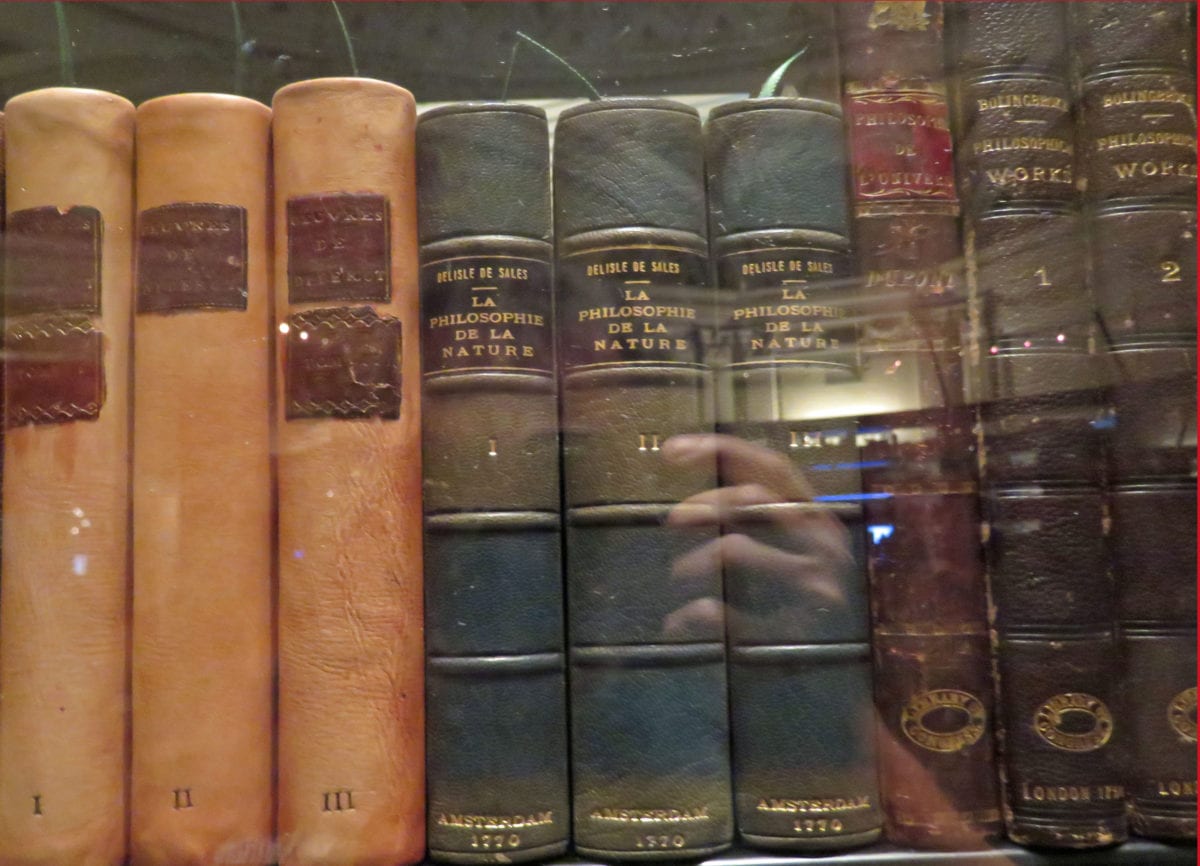
A sample from Thomas Jefferson’s library books: Glynn Wilson
Do you think you could read 6,487 books in your lifetime? What about 16 million? Not a chance.
As I was wandering around in this awesome building and studying the brochure, I had an idea for a story, as usual. It’s my “bumbling reporter” routine and always works to find something interesting.
Online Copyright
So this morning I sent an email to the attorneys in the U.S. Copyright Office to see where online copyright now stands. I had to deal directly with them awhile back on the big Bush AWOL story and in 2004, the big print publishers still had the upper hand in federal court over online publications. Have they made progress in the language and the law? We will see.
Long time friends and fans may recall that I got involved in a lawsuit back in the Bush years with author Kitty Kelly. I was written up in the New York Times Books section, but I ended up dropping the case when my lawyer in Birmingham botched the research.
A Writer Is Suing the Author of a Hit Book on the Bushes
My version of this story is on file in the Library of Congress, but only because I printed it out and mailed it in and paid a $30 registration fee (I have a picture of the certificate somewhere but can’t find it at the moment).
It was unrealistic — and the copyright office staff and lawyers knew it — for web publications to print out every article and send it through the U.S. mail and pay such a fee. The bloggers were just beginning to take off in the election of 2004. Have those of us who publish on the web gained real copyright protections yet? I don’t know the answer since no mainstream news outlet covers such things.
As far as I know, the corporate press and the big New York publishing houses are still trying to cling to their privileged status under the First Amendment. Donald Trump’s election gave them a big boost.
I wrote about that from this very spot last year, in case you missed it.
The State of Objective Journalism and Democracy in Trump’s America
Trump Reality Show
Don’t miss the show tonight when Trump announces his Supreme Court pick on national TeeVee. Then watch the fight in Congress over the next few days and weeks, along with the protests here and around the country. I may have to use my Senate gallery pass to see this vote go down.
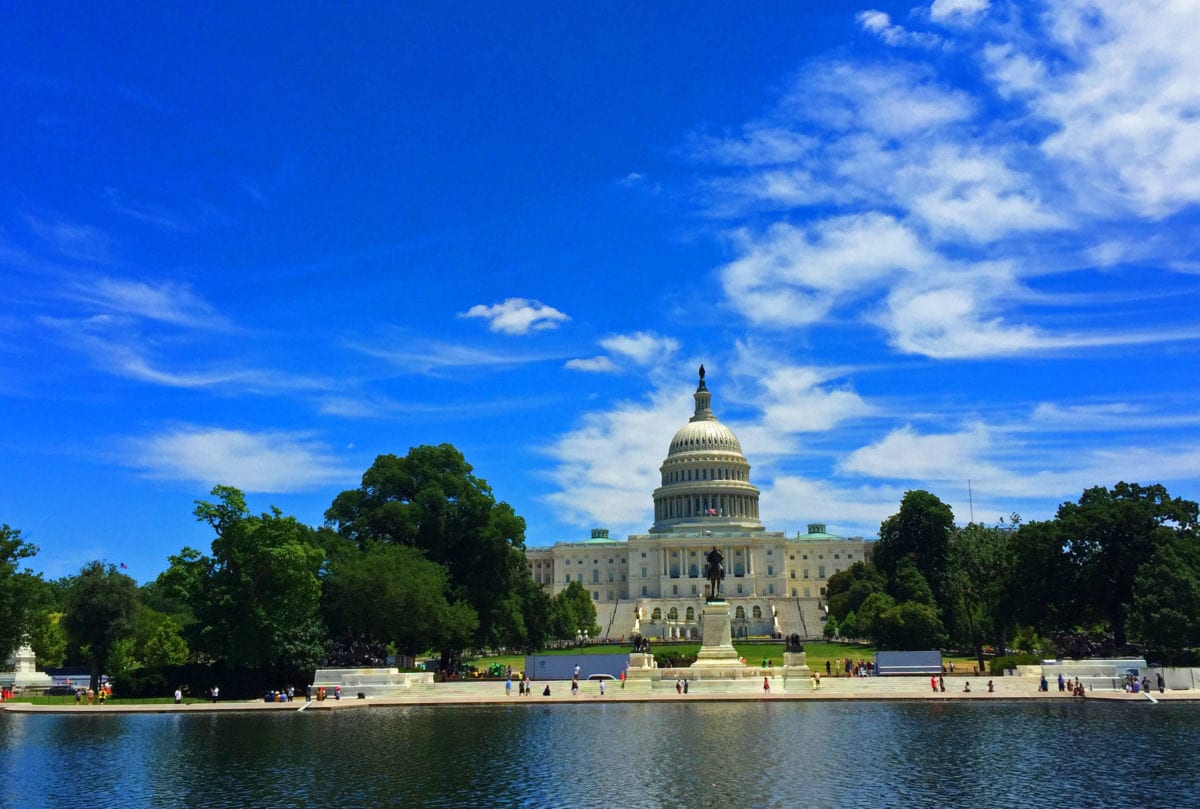
A view of the U.S. Capitol over the reflecting pool: Glynn Wilson
Stay tuned, and keep sharing our links. We will not give up until we see that web publishing gets the respect it deserves.






